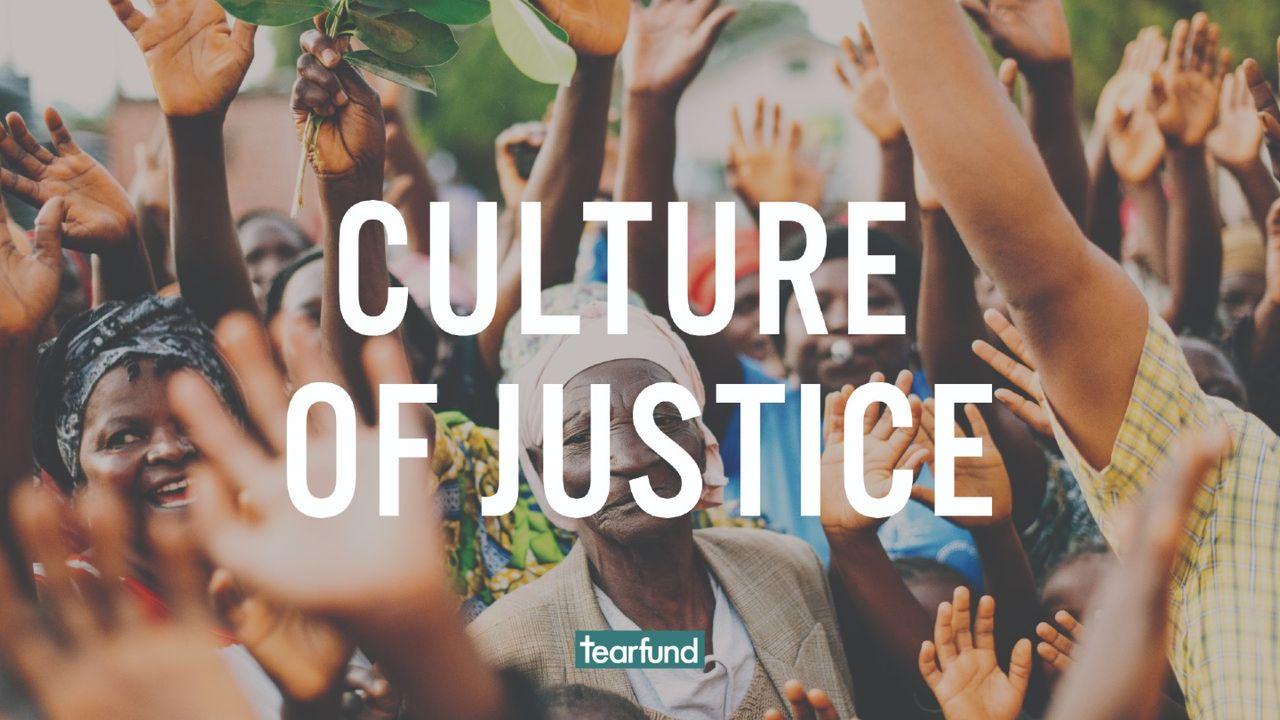Culture of JusticeExemple

When people within our societies are discriminated against, the image of God in them is defiled.
Just as Jesus lamented when the house of God was defiled - overturning the tables of the moneylenders in the temple and berating them for turning it into a den of robbers - people must be able to respond with lament when the image of God that they bear is defiled.
As the unhealed wounds of historic and systematic injustice are surfacing, it is tempting to want to move to reconciliation or unity as quickly as possible. But without unearthing and challenging systemic racism, the drive for reconciliation will only lead to a shallow substitute which serves to perpetuate injustice.
In Luke’s gospel, a spotlight is placed on Jesus’ compassion for the marginalized and oppressed through the redemptive story of Zacchaeus. Zacchaeus was despised by Jewish society because of his affiliation with Rome, the oppressive regime of the time. As a tax collector, he was complicit in and benefitted from systemic injustice.
Oftentimes, the tax collectors exploited their place of power and authority by overcharging citizens. What stands out in this story is Zacchaeus’ response after encountering Jesus: Feeling convicted of his sin, he vowed not only to repay his debt but to give half of his possessions to the poor and to pay back fourfold those he had wronged.
After encountering Jesus, Zacchaeus recognized his wrongdoing, which led to repentance that resulted in radical action. It stirred an outpouring of generosity that led him to go above and beyond in his response to the injustice in which he had not only been complicit but had overtly participated in. This is the kingdom of God: the reconciliation of equality and justice.
It is impossible to know and follow Jesus and not be moved with the same compassion for the marginalized and oppressed.
Genuine reconciliation requires that we recognize and name injustice, address pain, and allow space for lament, radical repentance and re-envisioning. We cannot rush through these stages: we need to be willing to sit in this uncomfortable place of listening and recognizing, creating a space from which change can emerge.
Reflection:
Was Jesus justified in overturning the tables in the temple? What was it that enabled Zacchaeus to recognize the sin and injustice in his own life? What stage do you feel you’re in right now, lament, repentance, or revisioning?
Écritures
À propos de ce plan

All people are image-bearers of God and were created to flourish, but in a culture rife with injustices, God’s will for his children is not being realized in its fullness. This collection of devotionals identifies the unique role Christians play in combating dehumanization and racial injustice in our society and will inspire you to actively join God in His redemptive work in our world.
More
Plans en lien

Réplica - Être avec Jésus, pour devenir comme lui et faire comme il faisait.

Comment augmenter votre sensibilité spirituelle ?

Garder confiance et espérance

Les esprits d’affliction

VOUS + DIEU = PLUS QUE SUFFISANT (Les Clés Pour Marcher Dans L'autorité Spirituelle Et L'intelligence Émotionnelle)

La puissance de JE SUIS

Dans La Victoire!

Actes en 28 jours

5 textes bibliques pour comprendre la pauvreté
